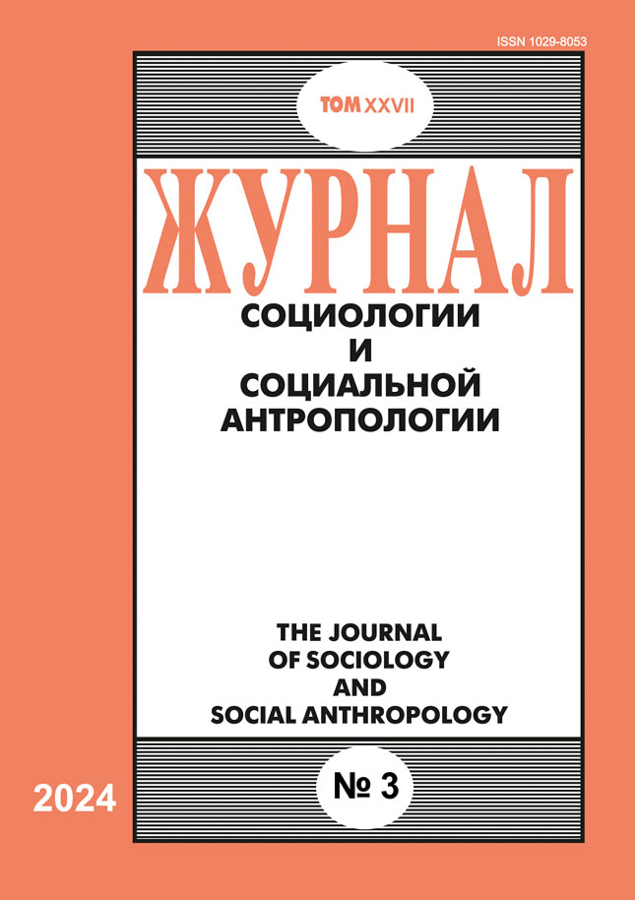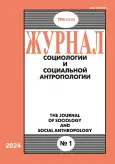Vol 27, No 1 (2024)
Environmental Sociology
“Stop Spoiling Our Land”: Regional Identity and Environmental Mobilization in the Russian Regions
Abstract
 216-246
216-246


Sociology of Culture
Strength and Weakness: Dynamics of Representation of Hegemonic Masculinity in Russian Rap
Abstract
 103-138
103-138


Sociology of Communication
Creativity and Subjectivity as Phenomena of the Digital Society
Abstract
 139-161
139-161


Sociology of Education
Typology of Research and Pedagogical Stuff: The Sociological Approach
Abstract
 162-191
162-191


Sociology of Labor
Labor Relations in Transformation: Vectors for the Development of the ICLRS Ideas
Abstract
 25-29
25-29


The Role of Mentorship in Formation of Labour Culture and Workers’ Solidary Behavior at the Russian Industrial Enterprises
Abstract
 30-62
30-62


Motives and Barriers to Citizen’s Participation in Corporate Community Development Projects (CCDPS): Examining the Regional Experience in Russia
Abstract
This article explores the motives and barriers to citizens’ participation in corporate community development projects (CCDPs) funded by large industrial enterprises in Russia. It presents the results of a research conducted in Perm Krai in 2019-2020. This research employs a classic version of the case study - a study of a settlement. Furthermore, it represents an extended case method in which the selected municipalities are considered not as isolated objects, but as subsystems that are part of the regional and national systems. This study examines the corporate community development projects funded by one of the largest industrial enterprises in Perm Krai - LLC LUKOIL-PERM. This analysis is based on 40 in-depth interviews with participants of CCDPs and a survey of 1,200 citizens in four municipal districts in Perm Krai where CCDPs were implemented. Drawing on these empirical data, this article argues that those CCDPs are an evolving innovative channel for citizen participation in community development. In comparison with traditional Corporate Social Responsibility (CSR) practices, the goal and results of such projects go beyond the provision of social benefits to local communities. Such projects support the active involvement of community members and encourage the development of new social practices, such as taking initiative and responsibility for addressing social problems at the local level. To ensure the sustainability of CCDPs projects and community members’ active and continuous involvement, we suggest that supporting mechanisms which are currently offered to participants by the local authorities and the company’s management should be strengthened and developed further taking into account the citizens’ needs and existing participation barriers in such projects.
 63-84
63-84


Scenarios of Changes to the Regional System of Vocational Training of Kuzbass Personnel for the Period Until 2050
Abstract
 85-102
85-102


Sociology of the Body
Models of Body Perception: Empirical Conceptualization and Interpretation
Abstract
 247-273
247-273


Sociology of Management
Cross-Sector Social Partnership as the Basis of Municipal Public Policy
Abstract
 192-215
192-215


Civilizational Analysis
Interpretations of Russian Civilizational Identity in Western Social Science
Abstract
 7-24
7-24












